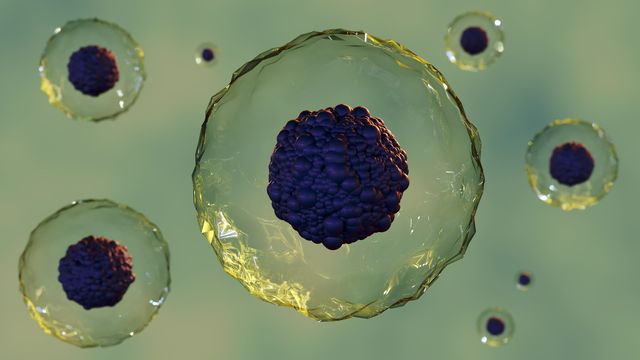Trending News
News

News
Fusobacterium May Help Colorectal Cancer Grow and Spread
A bacterial species found in the human stomach and intestines may have important implications for treating colorectal cancer.

News
New Marker In Blood Could Detect Fatal Breast Cancer Up To One Year Earlier
A new marker that could be used to diagnose fatal breast cancer up to one year ahead of current methods has been identified in a study led by UCL.

News
Open Accelerator Announces Winning Life Science Start-Ups
Second edition of accelerator unveils seed funding winners.

News
Nanowire Device Enables Efficient Capture of Extracellular Vesicles from Urine
Researchers from Nagoya University have developed a nanowire device able to detect microscopic levels of urinary markers potentially implicated in cancer.

News
New Target for Prostate Cancer Identified
Hokkaido University researchers have uncovered a cellular protein that stabilizes a tumor promoting signaling pathway, suggesting a new target to treat prostate cancer.

News
Cancer Overrides Our Circadian Rhythm to Survive
Researchers found that patients with breast, gastric or lung cancers survived longer when they had higher levels of Bmal1 protein.

News
Leukaemia Treatment Could be Made More Effective Using Drug for Iron Overload
Chemotherapy for one type of leukaemia could be improved by giving patients a drug currently used to treat an unrelated condition, new research shows.

News
Micro-Spectrometer Could Enable Analysis On Your Smartphone
Use your smartphone to check how clean the air is, whether food is fresh or a lump is malignant. This has all come a step closer thanks to a new spectrometer that is so small it can be incorporated easily and cheaply in a mobile phone. The little sensor is just as precise as the normal tabletop models used in scientific labs.

News
Scientists Use Sperm to Transport Drugs to Treat Cervical Cancer Cells
Now a new potential drug carrier to treat gynecological conditions has joined the fleet: sperm. Scientists report that they have exploited the swimming power of sperm to ferry a cancer drug directly to a cervical tumor in lab tests.

News
FDA Approves Perjeta (pertuzumab) for Adjuvant Treatment of Specific Type of Early Breast Cancer
Roche today announced the US Food and Drug Administration (FDA) has approved Perjeta® (pertuzumab), in combination with Herceptin® (trastuzumab) and chemotherapy (the Perjeta-based regimen), for adjuvant (after surgery) treatment of HER2-positive early breast cancer (eBC) at high risk of recurrence.
Advertisement




